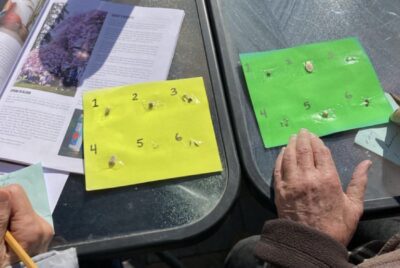RESEARCH
The Cultivated ‘Healing Garden’: Respite and Support or Lifestyle Change?
Summary
This study details a pilot project called the Healing Garden, which utilized a cultivated therapeutic landscape in the form of a communal garden with containers. The primary aim was to investigate whether this gardening activity could help recovering cancer patients adhere to suggested lifestyle guidelines concerning diet and exercise. A secondary goal was to explore the extent to which the project could enhance social peer support among participants. The research is considered important as it positions the communal garden within a public health framework, exploring both its potential for holistic wellbeing benefits and its effectiveness as a targeted intervention for individual behaviour change. The project was conducted over one growing season from April to October 2017 at a cancer support centre in the Netherlands.
The methodology of the Healing Garden pilot project involved collecting both quantitative and qualitative data from participants who engaged in weekly group gardening sessions. Quantitative data included measurements from standardized questionnaires on physical health, physical tests, accelerometer data, activity diaries, and anthropometric measures like height, weight, and BMI. Qualitative data was gathered through semi-structured interviews focusing on participants’ expectations, experiences, and perceptions of social support, along with input from scoring cards. A significant aspect of the design was the interdisciplinary approach involving sociologists, human nutritionists, and plant scientists, although this also presented challenges in fully integrating aims and methods. Practical considerations, such as using containers placed on a gravel pitch adjacent to the support centre, heavily influenced the garden’s design due to accessibility and logistical factor.







